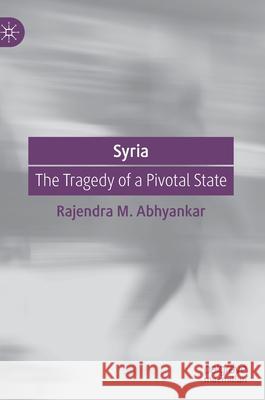Syria: The Tragedy of a Pivotal State » książka
topmenu
Syria: The Tragedy of a Pivotal State
ISBN-13: 9789811545610 / Angielski / Twarda / 2020 / 283 str.
Kategorie BISAC:
Wydawca:
Palgrave MacMillan
Język:
Angielski
ISBN-13:
9789811545610
Rok wydania:
2020
Wydanie:
2020
Ilość stron:
283
Waga:
0.53 kg
Wymiary:
21.01 x 14.81 x 1.91
Oprawa:
Twarda
Wolumenów:
01
Dodatkowe informacje:
Wydanie ilustrowane











